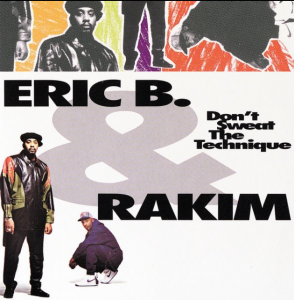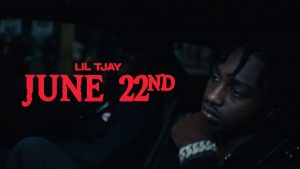
Renowned music producer Andre “Dre” Lyon, famous for his affiliation with the esteemed production team Cool & Dre, has made an exciting announcement. Dre has officially partnered with Lobus, a prominent cultural asset management platform.
With a staggering portfolio valued at over $9 billion, Lobus has become a leading authority in this field. As a partner, Dre will collaborate with Lobus to introduce an innovative approach that allows musicians, entertainers, and creators to showcase their assets as alternative investment opportunities. This groundbreaking model enables individuals to issue public shares, much like Fortune 500 companies, for their music catalogs, digital content, artwork, and other valuable cultural assets.
Dre’s involvement signifies a transformative shift in the investment landscape, elevating culture to a viable asset class surpassing traditional stocks, bonds, and commodities. This development empowers individuals to engage with cultural assets unprecedentedly while allowing artists, musicians, filmmakers, influencers, and creators to monetize their intellectual property and generate wealth for future generations. Together, Lobus and Dre are leading the charge in this remarkable innovation, making the value of cultural assets accessible to a diverse range of individuals.
In an exclusive interview with The Source, Dre details his partnership, how it impacts artists and investors, and more.
The SOURCE: Can you tell us more about your partnership with Lobus and the groundbreaking initiative you are working on? How will it enable musicians to bring their art to market as alternative investment opportunities?
DRE: I met Lori Hotz from Lobus at the World Economic Forum in Davos. We shared the same ideas about generational creatives being able to access liquidity through their works and their talent and utilizing their art as an asset. On that foundation alone, we shared a lot of the same ideas and principles.
For me, as a partner at Lobus – outside of just the vision for us as a company – is also being someone that can go out there and acquire cultural assets, whether its scripts, a Broadway play, or a music catalog.
I’ve been in the music business professionally for nearly 22 years, and over the past decades, I’ve established amazing relationships with amazing people across all spectrums of the business. It puts me in a strong position to go out there and acquire the right cultural assets that fit the mold of what we’re doing at Lobus.
Also, the goal is to put the artist and creator in a position where they can leverage their art as an asset, like people in the finance world. You don’t want to have to divorce yourself from your assets in a one-time sale, which is happening right now in the music business with songwriters, artists, and producers selling off their catalogs.
It’s very important for us to help creators become owners, especially of your own work, while still being able to leverage that and make money off your assets. That’s what we’re all about.
How do you envision this concept benefiting both artists and investors?
Developing a relationship between investors and the artist is huge. I mean, what we are building, the word “investor” takes on so many different forms. You have financial institutions investors, venture funds, and venture companies as investors, but also the fans through our Super App will also become investors.
I did a podcast the other day where I was explaining how much I love my favorite groups back in the day. If there were a feature on the phone to invest in that group, I would have invested in the group just because of how much I love the group. That group OutKast went on to be a tremendous success, which would have been a great investment for me.
It also is a great entry point for this new generation to learn about investing and learn about finance. I think crypto was the gateway for this generation to learn about that. Unfortunately, the market crashed, but it introduced the idea of investing in crypto and stocks and being able to read how things are going up and down.
I think this is a safer and more solid foundation, and there is a lot more fun to be had, especially as you can invest in your favorite artist’s career. Also, at the same time, you benefit from their success as well. For the artist, this is great because whether it’s the fans or a financial institution investing in you, it creates that relationship. There is more for you to do with your fans and with a big firm, whether Franklin Templeton or another.
How will this new model allow individuals to access cultural assets in an unprecedented way? Could you explain the process of purchasing shares of music catalogs, digital content, and art pieces?
We’re creating the Super App – you would have access on an iPhone, and all the assets would fit on that app. For example, if you’re a huge fan of Travis Scott and you find out that Lobus has four of the producers that are working on Travis Scott’s next album sitting in our fund, now you have an opportunity to invest in those producers and participate in the next Travis Scott album.
Now, you have an opportunity to say, “Not only do I love the album, but I invested in the producer that did track No. 4 and track No. 5 five, and this is amazing.” When you are listening to the music, the success of that album brings value to that producer’s catalog, which you are now invested in and brings value.
With your extensive connections and music industry expertise, how do you plan to assist artists in monetizing their art through this initiative? What role will you play?
I’ve been blessed to be doing this for over two decades. I have relationships with executives in the music business, all the way down to artists, managers, publishers, and others. My first hit record was released in 2003; the most recent No. 1 was 2022. It is very rare to see something like that. Our influence with younger artists, iconic artists, is very strong.
My relationships led us to not only do Hip-Hop & R&B but also allow me to sit down with other artists from other genres, such as country or pop. It has also helped me with my relationships in the film industry. It doesn’t hurt to be in the position where people label you an icon or legend; it puts me in a position of strength, especially with what I am tasked to do.
This initiative seems to bridge the intersection of music, finance, and technology. What are the potential implications for the future of the music industry and investment landscape?
With technology, the youth are finding a new way to create wealth for themselves. You have kids that are streamers on different platforms like Rumble or Twitch that are bringing in eight figures annually and high eight figures. You have guys that have created their own server to play Grand Theft Auto, where they charge a membership fee to get on their server that’s making six figures to seven figures a year. Then they find a way to scale that by using Twitch, YouTube, and combining Instagram Live and combining all of these different platforms that bring in more money.
So, you have a brand-new asset class right now that is primed to enter the world of finance. You also have what happened with the NFT explosion and Crypto. What came out of that was education because a lot of people made a lot of money with crypto, and people lost a lot of money with crypto. The residue of that whole experience has been financial education.
We are accelerating that by using the co-founder of Lobus, Lori Hotz’s extensive background in finance and relationships to help bring these worlds together. We are putting creatives in a position of ownership where now you can take your assets, leverage them and create generational wealth.
In the next five to ten years, we’ll see many more headlines where you’re seeing creatives doing billion-dollar deals or raking in 9 figures off investments. You know we have amazing iconic artists like NAS, and we celebrate the headlines where NAS was an investor in Ring, and he had a huge pay day because he invested in it early. What Lobus is doing is – we are going to make it a lot easier, and we’re going to create a lot more than NAS in that sense.
Do you anticipate any particular challenges or obstacles in implementing this new investment model? How do you plan to address them?
There will always be challenges when you are doing something new. A lot of the time, people have to be able to see the vision. You will always encounter certain headwinds against you, not because they are against you, it’s because they don’t see the vision.
There will be people who see the vision and think it is unbelievable, but they will want you to do some of the lifting in the beginning before they jump on all the way. The one thing we are not trying to do is we are not trying to tear down the infrastructure that already exists. We are not trying to get rid of record companies, we are not trying to get rid of publishing companies, we are not trying to do anything like that.
We want to work in tandem with the streaming companies. We want to work with them and tweak the system to benefit the artist more than it is now. Our entire team is confident we will do what we say. We also have great partners from Franklin Templeton who absolutely see the vision and are working with us to ensure we get it done.
Lastly, what are your long-term goals and aspirations for this collaboration?
Disney! Dreamworks! You know, 10-15 years down the line we want to have such an amazing synergy going on with all our partners and creatives that invested their assets into the funds to create new things and new content.
Music catalogs are just one part of what we are doing. Like I said, we are going to be in the business of movie scripts, Broadway plays and real estate. The idea is to bring all those people together, to help them create real wealth for their families on their own and to create new things.
For example, if I have a movie production company that sits in the funds, amazing music producers that sits in the funds, amazing script writers that sit in the funds, and sound stages that sit in the funds, the next thing to do is to put everyone in one room to create something new. Everything that we create will go to another fund that we all share in. Then, we will all be owners and that’s the whole idea.
The post Dre of Cool & Dre Talks Joining Lobus to Make Music Catalogs into Investing Assets appeared first on The Source.





